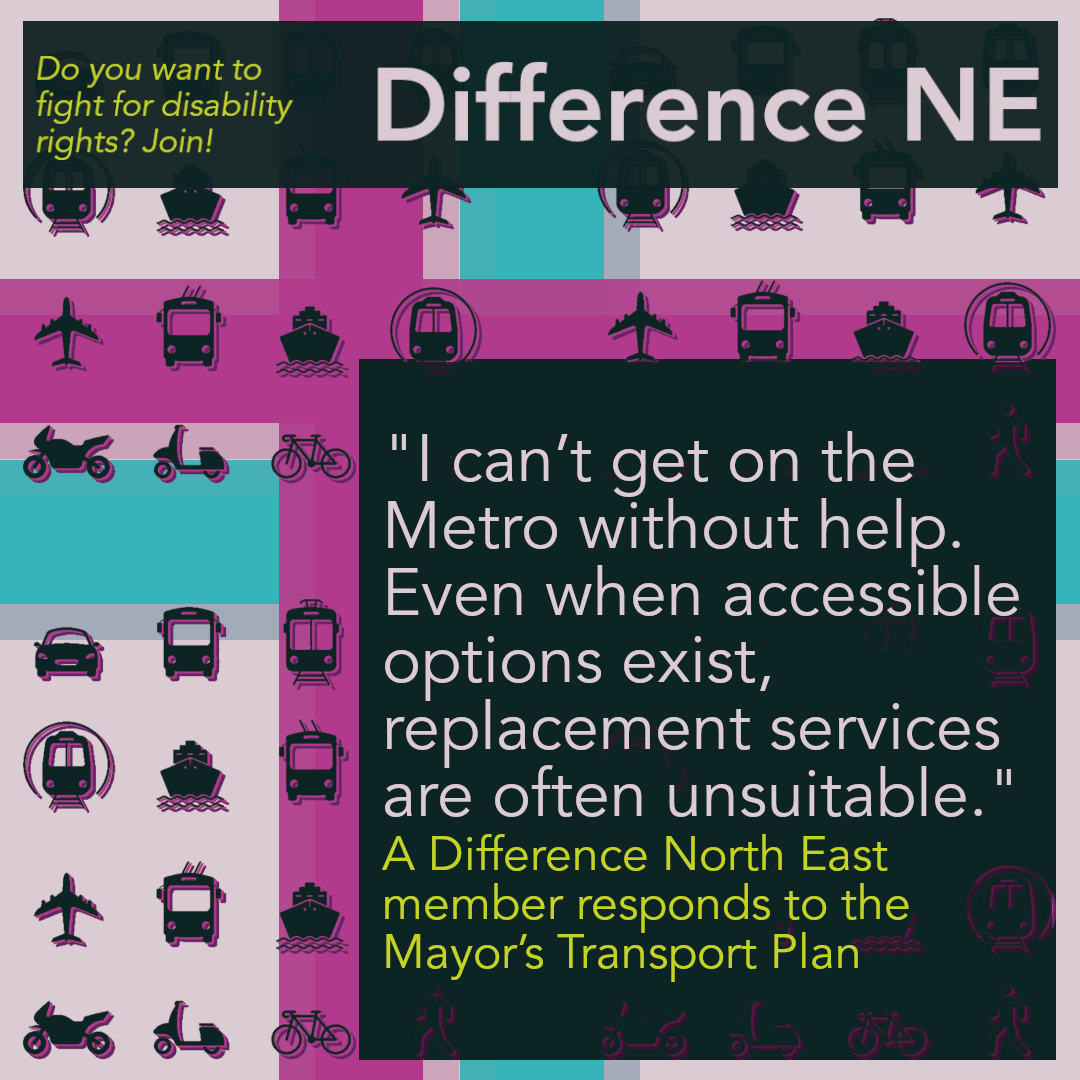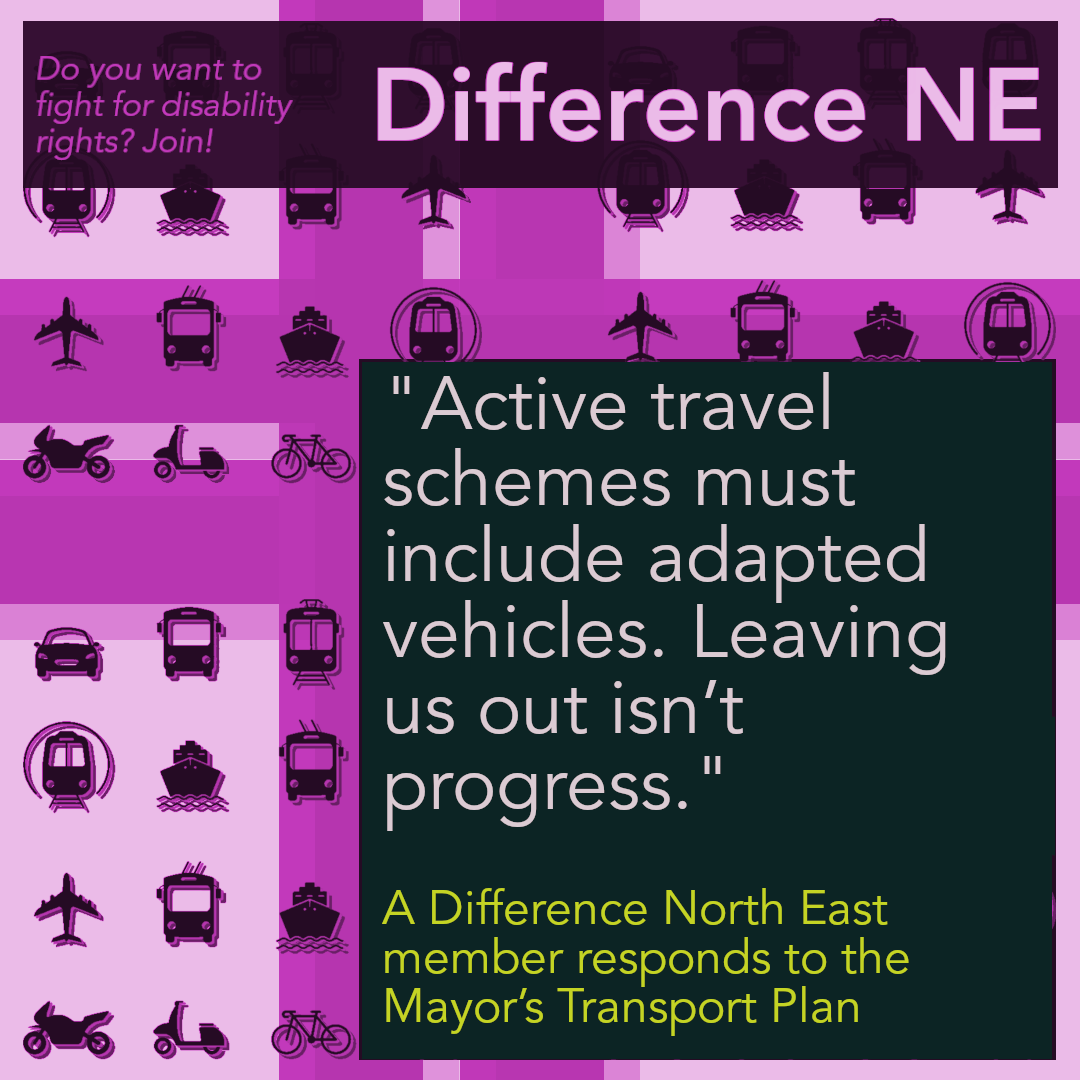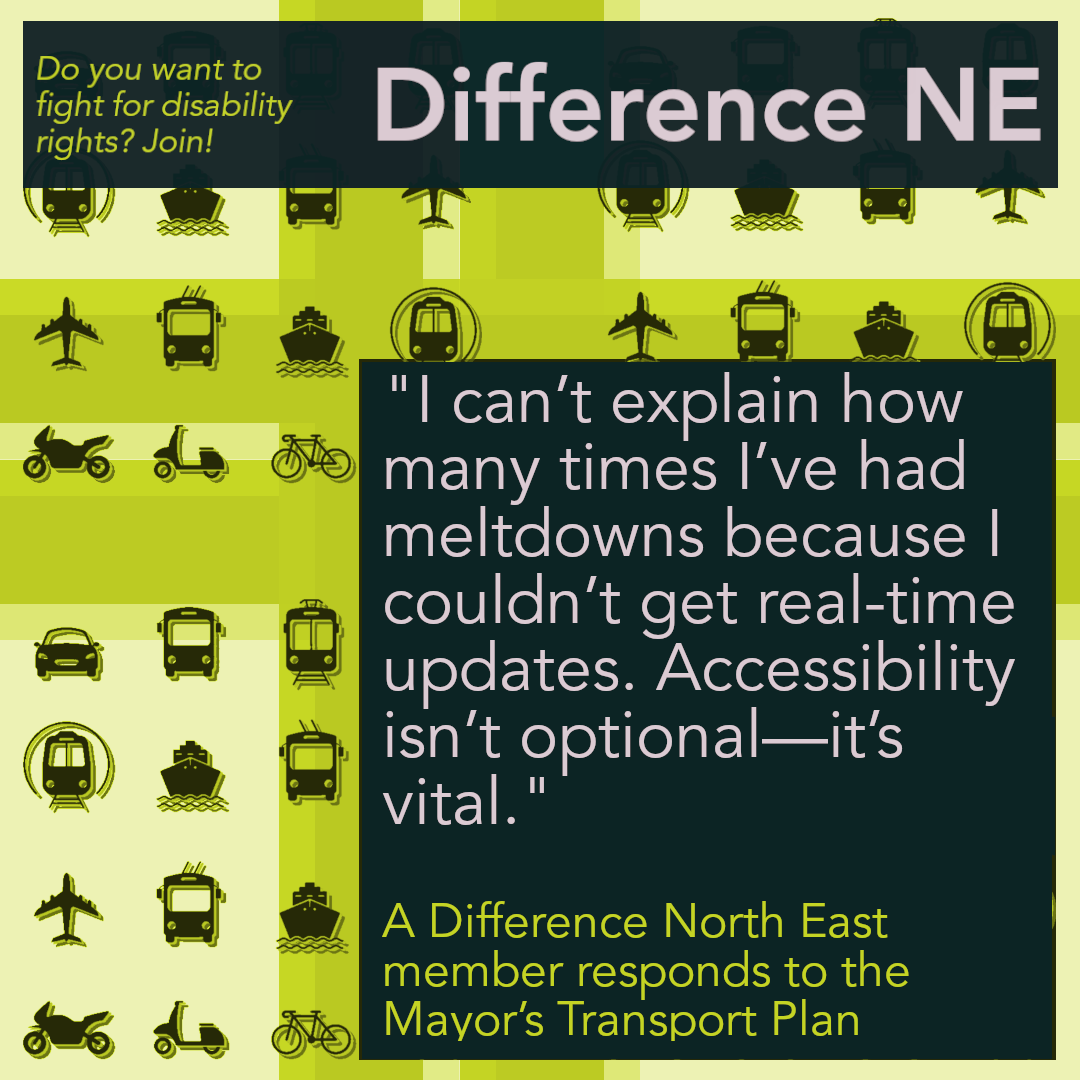Creating an Inclusive Future-response to North East Mayor Transport consultation.
Transport accessibility is essential for enabling participation in everyday life, yet disabled people across the North East face barriers at every turn. Our response to the North East Mayoral Combined Authority’s Transport Plan highlights these challenges and offers actionable recommendations to create a system that works better for everyone. By embracing the principles of mobility justice, we can ensure no one is left behind.
Read the full report here!

Key Challenges Identified – From our members
From inaccessible real-time updates to limited wheelchair accessible options, disabled users encounter significant obstacles in five key areas:
- Information Accessibility: Digital systems often fall short, with apps failing usability tests for disabled people.
- Public Transport: Long notification times for assistance and inaccessible vehicles restrict independence.
- Active Travel: Shared schemes and bike access leave out disabled people.
- Private Transport: A lack of wheelchair-accessible taxis reduces mobility options.
- Accountability: Decision-making rarely involves disabled people.
Mobility Justice: A Framework for Equity
At its core, mobility justice recognises that the ability to move freely is not just a matter of convenience but a fundamental right, and that Disabled people face compounded barriers due to systemic inequities in transport design and planning. As one member shared:
“I can’t get on the Metro without help. But Even when accessible options exist, replacement services are often unsuitable.”

This highlights how the legal right to ‘Turn Up and Go’ under the Equality Act 2010 is almost never a reality for disabled passengers. Difference North East supported the RMT’s ‘Save Our Ticket Offices’ campaign to prevent closures that would have further eroded access to this essential service, this campaign ended with the government cancelling ticket offices closures.
Transport systems and infrastructure provisioning and resources should be targeted to those with the least access to mobility and transport rather than, as is the case now, at those with the most.
For a deeper dive into mobility justice principles, we recommend this video about cycling and mobility justice that highlights the need for equitable access.
Stories That Resonate

Our members shared experiences that underline these gaps:
“I can’t explain how many times I’ve had meltdowns because I couldn’t get real-time updates. Accessibility isn’t optional—it’s vital.”
These stories highlight how inaccessible transport systems reinforce existing inequalities and underscoring the need for transformative change.
A Vision for Change
We propose practical steps to transform the North East’s transport landscape:
- Mandate disability awareness training for staff, led by Disabled Persons Organisations (DPOs).
- Prioritise lone disabled travellers by reducing notification times for assistance.
- Require wheelchair-accessible vehicles in public and private transport fleets.
- Involve disabled people in all design, testing, and planning stages.
To see what Difference North East has already contributed to shaping the region’s future, watch our presentation from the “Future for Transport in the North East” event in October 2023.
By embedding mobility justice into these actions, the region can foster a transport system that genuinely supports social and economic inclusion.
Get Involved
Accessibility isn’t about convenience—it’s a right. Join us in demanding for a more inclusive transport system by becoming a member of Difference North East. And together, we can drive change.
Visit www.differencenortheast.org.uk/join-us to learn more.
